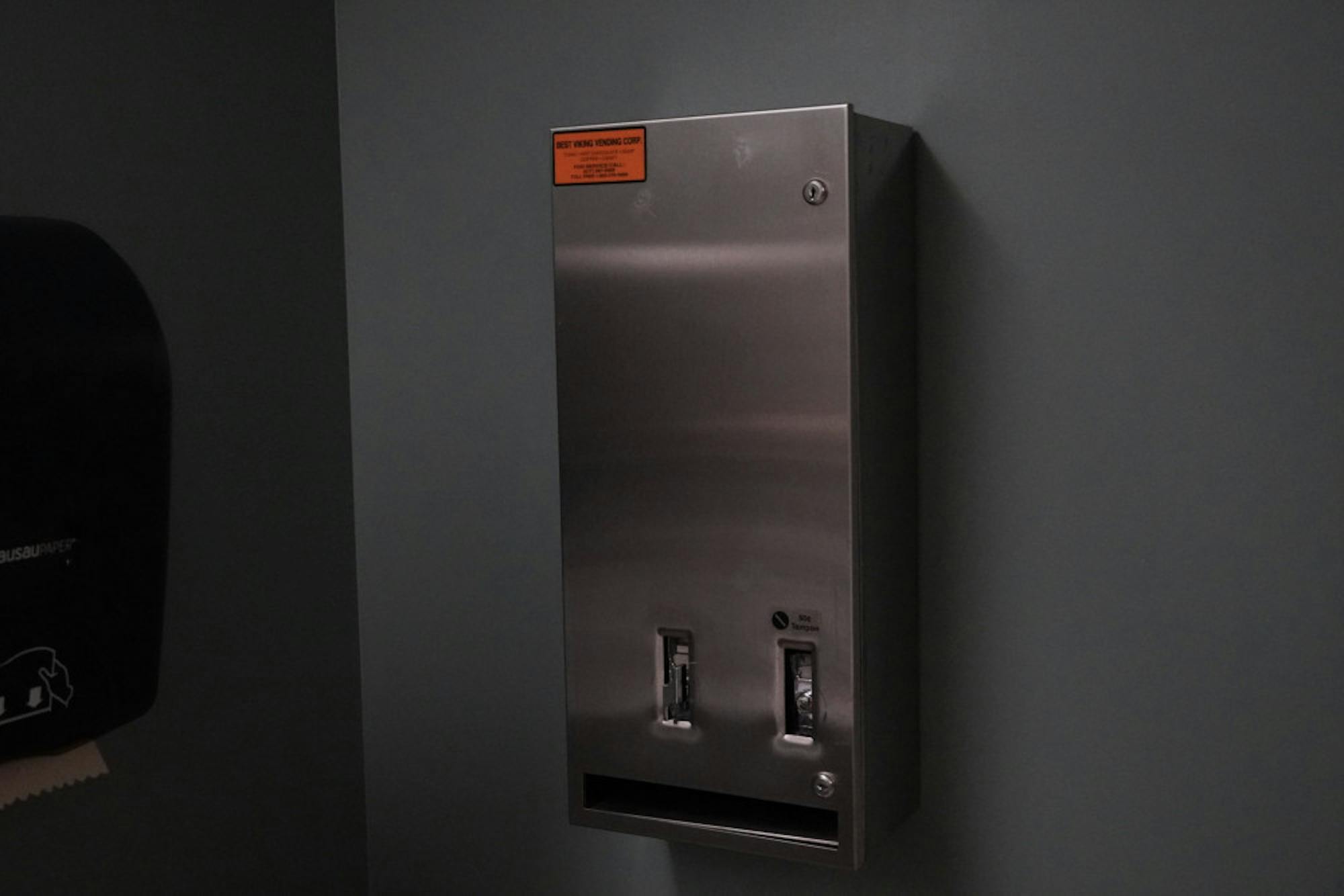The Services Committee of the Tufts Community Union Senate is restarting its Menstrual Product Project, an initiative that places free menstrual products in restrooms around Tufts’ campus. The project began in 2019 but was paused during the pandemic. Arielle Galinsky, Services Committee chair and a Class of 2024 senator, described the goals of the project.
“The overarching objective of this endeavor is to achieve menstrual equity for all students on the Tufts campus, as well as limiting any obstacles (financial or otherwise) that students might have in accessing tampons or pads,” Galinsky wrote in an email to the Daily.
Since its inception in 2019, the Menstrual Product Project has had numerous accomplishments.
“One of the most prominent successes was gaining support of [the] administration, as this is often an uphill battle when it comes to Senate projects,” Galinsky wrote. “Last year, also, success was achieved when the Senate Services Committee was able to partner with Tufts Health Services to run this project.”
Tufts Health Services helped the project navigate its largest barrier — receiving funds to purchase the products for free provision.
“One of the biggest places that helped was Tufts Health Services,” Avani Kabra, a senior and former TCU senator who helped start the project, said. “[They] took some money out of their budget and helped us to create this project.”
The project also receives funds from the Office of Campus Life.
Along with the partnerships that aid the funding side of the project, Tufts students play a critical role in the maintenance of this project.
“Three student workers were hired to stock bathrooms across campus with free menstrual products,” Galinsky wrote. “It was exciting to hear student feedback and to see the initial stages of the project in implementation!”
Kabra mentioned that help from student workers was instrumental in cementing the goals of the project.
“We have this program running where we get an inflow of these products and then they are being distributed by the student workers on either a weekly or a biweekly basis,” Kabra said.
The Student Services Committee continues to work on implementations for the Menstrual Product Project.
“Currently, we are in the process of solidifying a three-way partnership with the Women’s Center … , Senate Services Committee, and the Health Center to purchase an additional supply of tampons/pads to restock empty bins in public bathrooms across campus,” Galinsky wrote. “Our hope is to stock all bathrooms in the Campus Center, Tisch Library, Olin, and the Fitness Center.”
The Services Committeeis also exploring the possibility of distributing packages of menstrual products to the campus community.
“We are attempting to devise a more sustainable solution for students who need consistent access to these resources, perhaps by putting together and distributing bundles of menstrual products on an at-need basis,” Galinsky wrote.
The Services Committee aims to roll out the next stages of the project in April. The project coming to full fruition, however, remains unknown due to difficulties in receiving financial assistance.
“The eventual goal of the project is to put free menstrual products in all dorm bathrooms as well, and I do not foresee this happening until earliest next year,” Galinsky wrote.
Galinsky wrote that students can support the goals of the Menstrual Product Project by advocating for increased funding from the university administration.
“I think communicating to [the] Tufts administration and to Health Services why accessibility to free menstrual products is so important will certainly help our efforts to obtain more funding,” Galinsky wrote.






